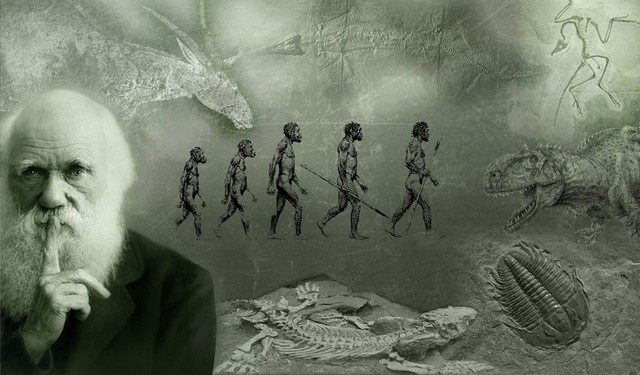Through the tireless efforts of Charles Darwin, the theory of evolution has gradually been shaped and accepted by the scientific community.
November 24, 1859 – Charles Darwin publishes the book “The Origin of All Species”, paving the way for the theory of evolution
Charles Robert Darwin (12/2/1809 – April 19, 1882) is a famous researcher in the field of British naturalology. It was he who discovered and demonstrated that all species evolved over time from common ancestors through natural selection. If evolution was accepted by the scientific community and the public in Darwin’s day, then his 1930s theory of selection served as the main explanation for this process, and today has become the foundation for modern evolutionary theory. Darwin’s discovery is a unifying theory for the biological sciences because it can provide plausible explanations for the diversity of species.
His book on the origin of species, published November 24, 1859, states that evolution over generations is due to mutation and that this provides a scientific explanation for multiplicity. form in nature. This is considered to be one of the typical scientific publications and the basic work of evolutionary biology. The full title of the book is On the Origin of Species Through Natural Selection, or the Preservation of Preferred Strains Through the Struggle for Survival. The book introduces the hypothesis that populations of species have evolved over generations through a process of natural selection. This is controversial because it contradicts the then religious beliefs underlying the biological assumptions.
Darwin’s book is the most essential he accumulated earlier aboard the Royal Navy Beagle as a naturalist conducting an in-depth study of the southern region. bridge in the 1830s and has been enlarged through surveys and experiments since its return. Of all the places Darwin had visited, the Galapagos Islands left the most powerful impression, he noticed many strange creatures he had never seen. Upon returning to England, Darwin noted the following in his notebook: “The first things that surprised me were the fossils of the extant armadillo (also known as the anteater). In addition, the animals showed more and more differences as they moved south. In the end, the organisms do not have slight differences within the Galapagos archipelago even if they are quite young islands in terms of geological age. Charles Darwin was not immediately aware of the significance of the change in the appearance of organisms, so he recorded all the remarks for later research when he returned to England. In fact, he was the one who did not accept what the Bible says, in that all species were created at the same time and have not changed over time.

The first 35-page draft was written in 1842, in 1844 it was extended to 230 pages. The key question of the book on Darwin’s mind is how to interpret the organic life that began to develop from the very beginning of Earth, explaining the appearance and disappearance of animals. Why are animals born, change over time, divide into different branches, and often disappear completely? For more than 20 consecutive years, Charles Darwin has compiled the book The Origin of All Species. He tried to make his theories come true by reading a variety of documents: magazines, travel books, sports books, books on growing flowers, books on livestock and books on natural history. Darwin also spoke to many herders of plants and animals and even sent questions to knowledgeable people. In addition, he also used the data collected during his journey aboard the Beagle to answer many problems related to botany, zoology, geology, paleontology …
Through the tireless efforts of Charles Darwin, the theory of evolution has gradually been shaped and accepted by the scientific community. At first, however, Darwin himself and his theories were fiercely rejected by the Church and conservative scientists. In honor of his contributions to science, after Darwin’s death his ashes were placed next to the position of scientist Isaac Newton inside Westminster Abbey, London.


